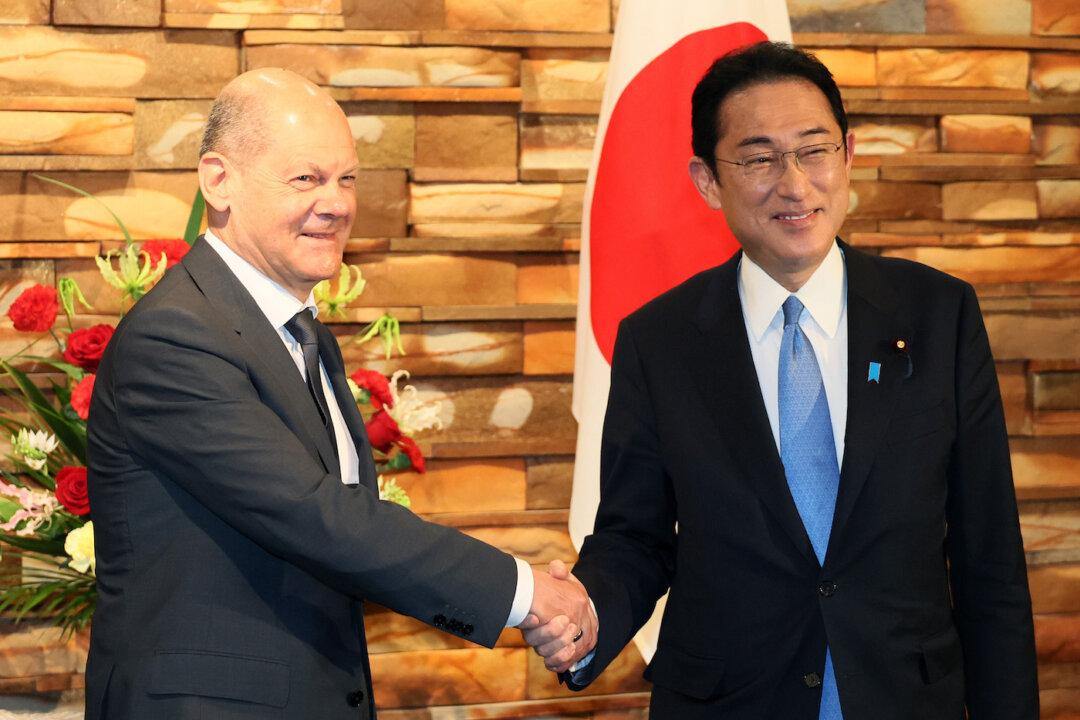Japanese Prime Minister Fumio Kishida and visiting German Chancellor Olaf Scholz agreed Thursday to establish an intergovernmental panel to boost their security cooperation amid the Russia-Ukraine war.
In a joint press conference, Kishida said that both leaders reaffirmed their intention to hold intergovernmental consultations and work closely together to achieve a free and open Indo-Pacific.





